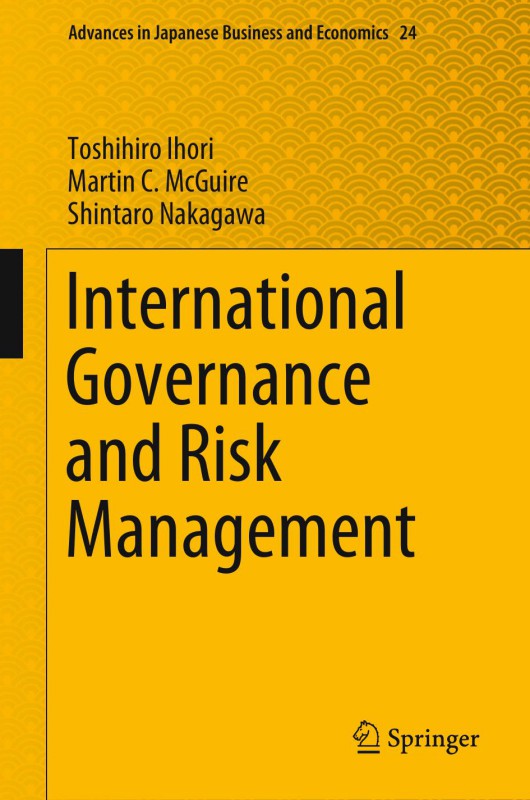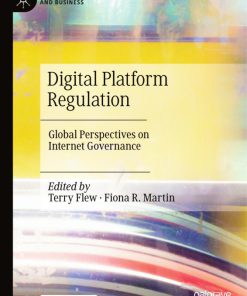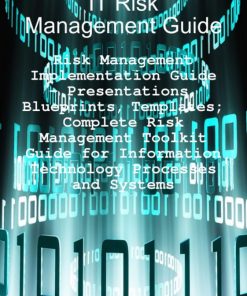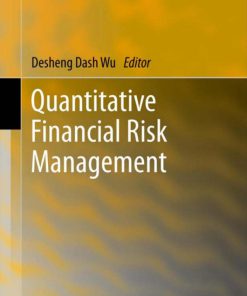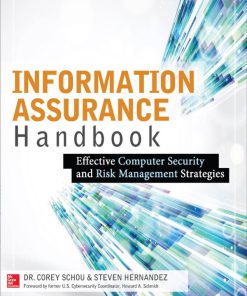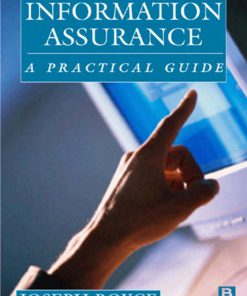International Governance and Risk Management 1st edition by Toshihiro Ihori, Martin McGuire, Shintaro Nakagawa ISBN 9811388741 978-9811388743
$50.00 Original price was: $50.00.$25.00Current price is: $25.00.
Authors:Toshihiro Ihori , Series:Management [479] , Author sort:Ihori, Toshihiro , Languages:Languages:eng , Published:Published:Jul 2019 , Publisher:Springer
International Governance and Risk Management 1st edition by Toshihiro Ihori, Martin McGuire, Shintaro Nakagawa – Ebook PDF Instant Download/Delivery. 9811388741, 978-9811388743
Full download International Governance and Risk Management 1st edition after payment

Product details:
ISBN 10: 9811388741
ISBN 13: 978-9811388743
Author: Toshihiro Ihori, Martin McGuire, Shintaro Nakagawa
In this book the authors demonstrate how the economics of insurance, risk reduction, and damage control or limitation can be combined with concepts of collective choice and collective behavior to improve analysis of the escalating threats faced by alliances throughout the world.
The book develops a theory of risk management as integrating likelihood of loss, magnitude of loss, and isolation from loss into a consolidated model. It extends existing concepts of individual risk management by a single person to decision theory for an entire country, managed by a government bureaucracy and lodged in a universe of overlapping alliances.
The authors uncover a tendency, inherent in any bureaucracy for policy coordination in the realm of risk control to fail because of misunderstanding, disinterest, or perverse incentives. Understanding such incentives is essential to any sort of progress in risk management of proliferating national and global threats.
Self-protection aims to reduce the chances of loss. This reduction may require the use, or threat or promise of use, of defensive military weapons or, depending on context, the use of offensive military weapons. Japan’s constitution limits Japan to use of defensive measures only, even if Japan and the USA have formed a military alliance. This places Japan at an “economic corner solution” of providing only self-insurance. However, the Abe government intends to change the interpretation of the constitution so that Japan can provide a full range of self-protection as well as self-insurance. With the prospect of such constitutional change, this book becomes of special relevance to Japan’s national security.
International Governance and Risk Management 1st Table of contents:
-
Introduction to International Governance and Risk Management
- Defining governance and risk management in the context of international business.
- The need for effective governance in a globalized world.
- Key challenges in managing risks across borders and cultures.
- Overview of international governance structures and frameworks.
-
Fundamentals of Corporate Governance
- Corporate governance principles: transparency, accountability, and fairness.
- Governance structures: boards of directors, committees, and senior management.
- The role of governance in risk identification and mitigation.
- Global standards and regulations for corporate governance (e.g., OECD, Sarbanes-Oxley).
-
Risk Management in a Global Context
- Types of risks: financial, operational, reputational, legal, and political risks.
- Understanding cross-border risks in multinational organizations.
- The role of risk management in strategic decision-making.
- The risk management process: identification, assessment, mitigation, and monitoring.
-
International Risk Frameworks and Standards
- Key global risk management frameworks (ISO 31000, COSO, etc.).
- Regulatory and compliance requirements in international markets.
- Risk assessment methodologies in different cultural and regulatory environments.
- Integrating risk management practices into business strategy.
-
Political and Legal Risks in Global Operations
- Navigating political risk in foreign markets.
- Legal risks and international law: contracts, disputes, and liability.
- Understanding the role of local laws and international treaties.
- Risk management strategies for legal and political challenges.
-
Economic and Market Risks in Global Business
- Economic risks: inflation, exchange rate fluctuations, and economic instability.
- Market risks: competition, consumer behavior, and market volatility.
- Currency and credit risk management in international operations.
- Economic forecasting and scenario planning for global businesses.
-
Cultural and Social Risks in International Governance
- The role of cultural differences in governance and risk perception.
- Managing cross-cultural teams and leadership challenges.
- Social responsibility and ethical risk management.
- The impact of global social trends (e.g., sustainability, labor rights) on business governance.
-
Environmental and Technological Risks
- Environmental risks: regulations, climate change, and resource management.
- Technological risks: cybersecurity, data privacy, and innovation.
- Environmental and technological risk management in international settings.
- Risk mitigation strategies for emerging technologies (e.g., AI, blockchain).
-
Global Financial and Reputational Risks
- Financial risk management in multinational organizations.
- Crisis management and reputational risk: managing public perception.
- Insurance and financial instruments for global risk management.
- Case studies of financial crises and their impact on international governance.
-
Risk Governance and Decision Making
- The governance structure for effective decision-making in risk management.
- Balancing risk and reward in global business decisions.
- The role of corporate culture in risk-taking behavior.
- Tools and techniques for decision-making under uncertainty.
-
Crisis Management and Business Continuity Planning
- Developing a crisis management framework for international organizations.
- Business continuity planning for global operations.
- Case studies on crisis management in global companies.
- Post-crisis evaluation and recovery strategies.
-
Ethical Considerations in International Governance and Risk Management
- Corporate governance and ethical decision-making in a global context.
- Managing ethical risks: bribery, corruption, and corporate social responsibility.
- International anti-corruption laws and their impact on governance.
- The importance of transparency and accountability in managing risk.
-
Emerging Trends in Global Governance and Risk Management
- The impact of globalization on governance and risk management.
- The role of artificial intelligence and automation in risk management.
- Blockchain and its implications for international governance.
- Future challenges and opportunities in managing global risks.
-
Conclusion
- Key takeaways on international governance and risk management.
- The evolving landscape of risk in a globally connected world.
- Building a resilient organization through effective governance and risk management.
People also search for International Governance and Risk Management 1st:
international risk governance council
international financial management 13th edition
international risk management
international risk management certification board
international security governance
You may also like…
eBook PDF
New Living Cases on Corporate Governance 1st edition by Martin Hilb 3030486087 9783030486082
eBook PDF
Quantitative Financial Risk Management 1st edition by Desheng Dash Wu ISBN 3642268900 978-3642268908

